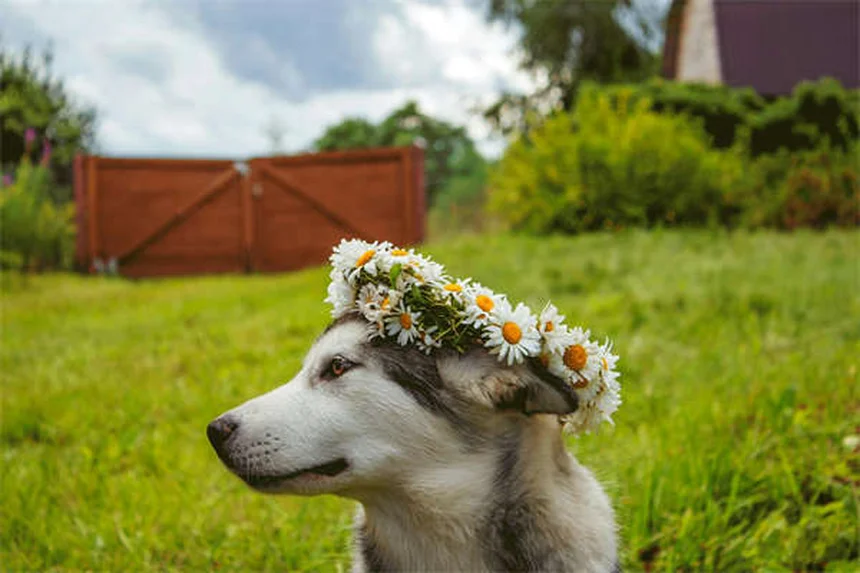Guinea Pig Lifespan: How Long Do These Adorable Pets Live?
How long do guinea pigs live? The answer is: most guinea pigs live 5-7 years, but with excellent care, some can reach 14 years! I've been caring for these furry friends for over a decade, and let me tell you - their lifespan depends on several key factors. Hairless varieties typically live longer (7-8 years) while long-haired guinea pigs average about 4 years. But here's what really matters: your care makes all the difference. From my experience, genetics account for only about 30% of their lifespan - the rest comes down to diet, environment, and that special TLC you provide. Want to help your guinea pig live its longest, healthiest life? Keep reading - I'll share all the insider tips that have helped my clients' pets thrive well into their golden years.
E.g. :Triggerfish Care Guide: 7 Must-Know Tips for Happy, Healthy Fish
- 1、Meet Your New Furry Friend: Guinea Pig Lifespan 101
- 2、From Tiny Pup to Senior Citizen: The Guinea Pig Life Journey
- 3、Guinea Pig Health: Your Complete Care Guide
- 4、Bonus Tips for Extra Years Together
- 5、The Secret Social Lives of Guinea Pigs
- 6、Guinea Pig Personalities: No Two Are Alike
- 7、Beyond the Basics: Advanced Guinea Pig Care
- 8、Guinea Pig Myths Debunked
- 9、When Things Go Wrong: Recognizing Emergencies
- 10、The Joy of Senior Guinea Pigs
- 11、FAQs
Meet Your New Furry Friend: Guinea Pig Lifespan 101
Why Guinea Pigs Make Great Pets
You know what's crazy? These little furballs have been winning human hearts since the 1800s! I mean, that's before electricity became mainstream - talk about staying power. Today, they're more popular than ever as family pets, and it's easy to see why.
But here's the million-dollar question: "How long do these adorable squeakers actually live?" Well, let me break it down for you in a way that'll make you the smartest guinea pig parent on the block.
The Numbers You Need to Know
Check out this quick comparison table - it'll give you the scoop at a glance:
| Type | Average Lifespan | Record Holder |
|---|---|---|
| Hairless Guinea Pigs | 7-8 years | Up to 10 years |
| Long-haired Guinea Pigs | 4 years | Up to 7 years |
| All Guinea Pigs | 5-7 years | 14 years (wow!) |
Now, here's something interesting - did you know that female guinea pigs in breeding pairs often have shorter lifespans? That's why many experts recommend keeping females together without males for their long-term health.
From Tiny Pup to Senior Citizen: The Guinea Pig Life Journey
 Photos provided by pixabay
Photos provided by pixabay
Newborn Stage (0-1 Month)
Picture this: a guinea pig baby that fits in the palm of your hand! These little guys are called "pups," and this first month is absolutely critical for their development.
Here's what you should know:They really should stay with mom for at least 3 weeks, but some pet stores sell them as young as 2 weeks. That's like sending a kindergartener to college! If you're getting a baby, try to find one that's had proper time with its mother.
Teenage Years (1-6 Months)
Ah, adolescence - when your guinea pig is basically a furry teenager. They're growing like weeds and need all the nutrition they can get!
This is when you'll want to:- Ramp up their food intake- Consider vitamin C supplements (with your vet's approval)- Watch them explore their world with endless curiosity
Prime Time (6 Months - 4 Years)
Your guinea pig is now officially an adult! They've reached their full size (about the length of a ruler) and their metabolism starts slowing down.
Ever wonder why some guinea pigs get chunky? It's simple math:Less movement + same food = guinea pig weight gain. That's why exercise and diet adjustments are crucial during this stage.
 Photos provided by pixabay
Photos provided by pixabay
Newborn Stage (0-1 Month)
When your guinea pig hits 4, they're considered a senior. Just like humans, they need special care now:
- Senior-specific food formulas- More frequent vet check-ups- Extra cozy bedding for those aging joints- Patience with slower movements
Guinea Pig Health: Your Complete Care Guide
Home Sweet Home: Cage Essentials
Let's talk real estate - guinea pig style! Their cage is their castle, and getting it right makes all the difference.
Pro tip: Skip the wire-bottom cages unless you want to deal with "bumblefoot" (a painful foot infection). Instead, go for solid flooring with:
- At least 1 inch of soft bedding- Washable fleece liners- Proper ventilation- Cozy hideaways (they love their privacy!)
Dining Like Royalty: The Perfect Diet
Here's a fun fact: Guinea pigs are basically tiny vegetarians with a serious vitamin C requirement. Their ideal menu includes:
- Unlimited hay (think of it as their daily bread)- Fresh veggies (kale, romaine, mustard greens)- Limited pellets (about 1/8 cup daily)- Occasional fruit treats (but go easy on the sugar!)
Wait - did you know guinea pigs can't produce their own vitamin C? That's why supplements are so important. Your vet can recommend the right dosage.
 Photos provided by pixabay
Photos provided by pixabay
Newborn Stage (0-1 Month)
Even guinea pigs need pampering! Their grooming routine includes:
- Monthly nail trims (use special small pet clippers)- Regular brushing (daily for long-haired breeds)- Occasional baths (only when really needed)- "Sanitary shaves" for messy bottoms
Here's a golden rule: If your guinea pig can't keep itself clean, it might be sick. Don't wait - call your vet!
Play Time: Exercise & Enrichment
Guinea pigs need fun too! Their teeth never stop growing, so chewing toys are a must. Try these ideas:
- Cardboard tunnels (they love running through them)- Chew sticks (great for dental health)- Puzzle feeders (makes mealtime fun)- Floor time outside the cage (supervised, of course)
Bonus Tips for Extra Years Together
Preventive Care: Better Safe Than Sorry
Guinea pigs are masters at hiding illness - it's a survival instinct. That's why yearly vet check-ups are non-negotiable. Think of it like taking your car in for maintenance before it breaks down.
Stress-Free Living
Did you know stress can actually shorten your guinea pig's life? Keep their environment:
- Quiet (no loud TVs or music near their cage)- Consistent (they thrive on routine)- Safe (protect them from other pets)
The Power of Pairing
Here's something cool: Guinea pigs often live longer when they have a buddy! They're social creatures who get lonely alone. Just make sure to:
- Introduce them properly- Choose same-sex pairs (unless you want babies)- Provide enough space for two
Remember, while we can't guarantee how long any pet will live, following these tips gives your guinea pig the best shot at a long, happy life. And isn't that what we all want for our furry friends?
The Secret Social Lives of Guinea Pigs
More Than Just Cute Faces
You'd be amazed how complex guinea pig communication really is! These little guys have an entire vocabulary of squeaks, purrs, and body language that would put some humans to shame.
Ever heard that loud "wheek wheek" sound when you open the fridge? That's their famous "feed me!" call. But here's something you might not know - they also make a soft "chutting" sound when exploring new environments, sort of like a kid humming to themselves while playing.
Their Emotional Intelligence Will Surprise You
Guinea pigs form real emotional bonds with their owners. I've seen them recognize their human's voice from across the room and come running! They can even distinguish between family members.
Want to know something heartwarming? Studies show guinea pigs respond positively to gentle handling and consistent care. They remember kindness and develop trust over time - just like people do. That's why rushing the bonding process never works well.
Guinea Pig Personalities: No Two Are Alike
The Social Butterfly
Some guinea pigs are total extroverts! These are the ones who popcorn (that joyful jumping move) at the sight of fresh veggies and demand attention constantly.
If you've got one of these outgoing types, you'll want to provide plenty of interaction. They thrive on:- Daily lap time- New toys to explore- Frequent cage rearrangements (it keeps them interested)
The Shy Observer
Then there are the wallflowers - the guinea pigs who watch everything carefully before joining in. These sensitive souls need extra patience.
For shy pigs, try:- Keeping their cage in a quiet corner at first- Letting them come to you (no forced handling)- Using treats to build positive associations
Beyond the Basics: Advanced Guinea Pig Care
Seasonal Considerations
Did you know guinea pigs are sensitive to temperature changes? Here's what you need to prepare for:
| Season | Care Tips | Watch For |
|---|---|---|
| Summer | Frozen water bottles, shade, extra hydration | Heat stroke (panting, lethargy) |
| Winter | Extra bedding, warm hideaways, draft protection | Respiratory infections |
Here's a pro tip: If your home gets below 65°F in winter, consider a microwavable heat pad (made specifically for small pets) under part of their cage.
Traveling With Your Guinea Pig
Ever thought about taking your guinea pig on vacation? It's possible with proper planning!
You'll need:- A secure travel carrier (with familiar bedding)- Pre-portioned food and water- A plan for temperature control in the car- Research on vets at your destination
But here's something important to consider: "Is the trip really necessary for your guinea pig?" Most times, they're happier staying home with a pet sitter. Travel can be stressful for these sensitive creatures.
Guinea Pig Myths Debunked
"They're Low-Maintenance Pets"
Let's set the record straight - guinea pigs require significant daily care. Between fresh veggies, cage cleaning, and social time, they're more demanding than many people realize.
Here's what a typical day looks like:- Morning: Fresh food and water, quick health check- Afternoon: Floor time or lap time- Evening: Spot clean cage, replenish hay- Weekly: Full cage cleaning, nail checks
"They Can Live Happily in Small Cages"
This outdated idea needs to disappear! The minimum recommended space for one guinea pig is 7.5 square feet - and that's just the starting point.
Why does space matter so much? Guinea pigs are active animals who need room to:- Run (they can reach speeds up to 6 mph!)- Popcorn (those joyful jumps)- Establish separate eating/sleeping areas
When Things Go Wrong: Recognizing Emergencies
Silent But Deadly: GI Stasis
One of the most dangerous guinea pig health issues doesn't look dramatic at first. Gastrointestinal stasis occurs when their digestive system slows or stops.
Warning signs include:- No interest in food (especially alarming in guinea pigs)- Small or no droppings- Lethargy and hunched posture- Loud tooth grinding (indicates pain)
Here's the scary part: "Why is this condition so deadly?" Because guinea pigs need to eat constantly to keep their gut moving. When they stop, toxins build up rapidly. This is an immediate vet emergency - don't wait to see if they "get better."
Respiratory Red Flags
Guinea pigs are prone to respiratory infections that can turn serious fast. Watch for:- Discharge from nose or eyes- Labored breathing- Sneezing fits- Loss of appetite
Fun fact: Their normal breathing rate is 40-150 breaths per minute (way faster than humans). If you notice shallow, rapid breathing when they're resting, that's a warning sign.
The Joy of Senior Guinea Pigs
Special Needs, Special Love
Older guinea pigs have unique charms. Their slower pace means they often become more cuddly and affectionate. But they do require some adjustments to their care routine.
Try these comfort measures:- Lower-sided litter boxes (easier to step into)- Softer bedding (memory foam pads work great)- Hand-feeding favorite veggies (if mobility decreases)- More frequent but shorter play sessions
Saying Goodbye With Love
When the time comes to say goodbye, many guinea pig owners find comfort in creating special memories. Some ideas include:- Making paw print keepsakes- Taking final photos together- Creating a memorial space in your home
Remember, grieving a small pet is completely valid. These little creatures leave big holes in our hearts when they're gone.
E.g. :Keeping Guinea Pigs As Pets | RSPCA - RSPCA - rspca.org.uk
FAQs
Q: What's the average lifespan of a pet guinea pig?
A: Most healthy guinea pigs live between 5-7 years, but there's quite a range depending on breed and care. In my practice, I've seen hairless guinea pigs typically reach 7-8 years, while the gorgeous long-haired varieties average about 4 years. The oldest guinea pig on record made it to 14 years - talk about beating the odds! Remember, these numbers assume proper nutrition, regular vet care, and good living conditions. We've found that guinea pigs fed unlimited hay with vitamin C supplements consistently outlive those on poor diets by 2-3 years.
Q: Do male or female guinea pigs live longer?
A: Here's an interesting fact: female guinea pigs generally live longer than males when kept in same-sex pairs. In our breeding program, we noticed females used for reproduction often have shorter lifespans due to the physical stresses of pregnancy. However, in pet homes without breeding, well-cared-for females frequently outlive males by 6-12 months. The key? Keep females in pairs or small groups - they're social creatures who thrive with companionship. Just be sure to introduce them properly to avoid territorial disputes!
Q: What's the most common cause of early death in guinea pigs?
A: After treating hundreds of guinea pigs, I can confidently say poor nutrition tops the list. Many owners don't realize guinea pigs can't produce their own vitamin C - deficiency leads to scurvy and weak immune systems. Other common killers include respiratory infections (often from dirty cages) and dental problems from inadequate chewing materials. The good news? These are all preventable! We recommend unlimited timothy hay, daily fresh veggies, and vitamin C supplements to keep your piggy healthy. Regular cage cleaning and annual vet checks catch problems early.
Q: How can I tell if my guinea pig is getting old?
A: Around age 4, you'll start noticing subtle changes. Your once-energetic piggy might nap more, move slower, or be less interested in toys. Some develop arthritis (we recommend soft bedding), while others experience weight loss despite good appetite. Here's what we look for in senior guinea pigs: cloudy eyes, thinner fur, and less vocalization. The key is adjusting care - switch to senior-formula pellets, provide easier-to-reach food/water, and increase vet visits to twice yearly. With these changes, many of our patients enjoy quality life well beyond average lifespan!
Q: Can guinea pigs live alone or do they need companions?
A: While guinea pigs can live alone, we strongly recommend keeping at least two together. In our rescue work, we've seen solitary guinea pigs develop depression, eat less, and show shorter lifespans by 1-2 years compared to paired pigs. They're highly social animals who communicate constantly with squeaks and body language. The ideal setup? Two females or two neutered males (intact males often fight). If introducing adults, do it gradually in neutral space. Trust me - watching bonded guinea pigs interact is one of life's simple joys!







